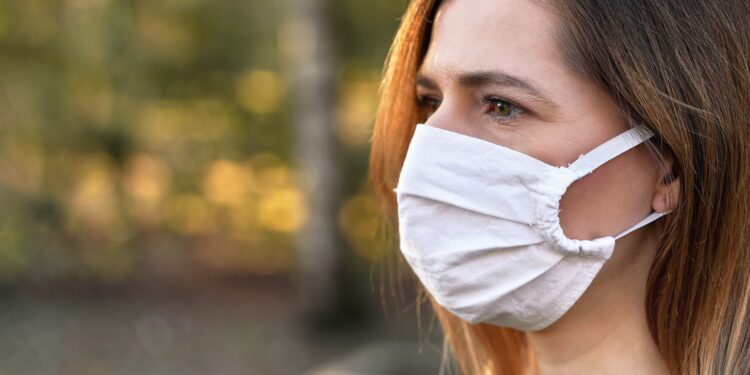Survey analysis: What protects against the Coronavirus
Although the Corona were relaxed measures now in all of the länder, but that the Virus is still a risk, shows, among other things, the current coronavirus outbreak in Göttingen. But how do you protect yourself from infection? The shows now a new analysis, for the well over 100 studies were evaluated.

While after Pentecost, day care centers, Restaurants, and pools more and more open, rules apply in many places continue to distance and the so-called mask of duty. And this is a new analysis, a good thing.
Combination of keep your Distance, mouth-nose-mask and eye protection
A combination of Distance, mouth-nose-mask and eye protection could prevent, according to a new Survey-analysis of a Corona-infection in the best way possible. Writing Researchers from Canada’s McMaster University in the journal “The Lancet”, after you have evaluated 172 studies in a systematic way.
A part of the studies dealt with the novel Coronavirus SARS-CoV-2, another with SARS, and a third with MERS. All of these pathogens belong to the corona virus.
The aim of the meta-analysis, the physicians, had been to check the best possible use of various protective measures, to create a basis for guidelines of the world health organization (WHO), which funded the study in part.
This is all the more important because it was different and sometimes contradictory recommendations.
Not a hundred percent protection
In its analysis, the canadian scientists were scientists to the following main findings:
- A distance of one Meter or more is associated with a significantly lower risk of infection than if a smaller distance is retained (2.6 percent versus 12.8 percent risk of infection). For each additional metre distance up to three meters could halve this risk, the authors describe the evidence for this statement as “moderate”.
- Visors, goggles and glasses, in General, seem to reduce the risk also (5.5 percent versus 16 percent risk of infection). Here the proof is, however, rather “low,” the authors wrote. There is the assumption that the eye can be a potential point of entry for the Virus.
- A similar result is shown in the effects of facial masks (3.1 percent versus 17.4 percent risk of infection). Here, too, the author of the review authors, the security Proof, however, overall, as a rather “low”.
The experts emphasize, that both keep their Distance, face masks as well as eye protection even in combined Form, and correctly applied – not a hundred-percent protection guarantee, but always by other measures, such as regular and thorough hand-washing should be supplemented.
Clear rules and recommendations to formulate
The Medicine is hope and doctors, that their results can be used by governments and managers of health systems, in order to formulate clear rules and recommendations.
However, it should be taken into consideration always also, how acceptable, feasible, resources are intensive and accessible to all of these measures.
As a part of the analyzed studies to all three viruses have shown that people accepted the protection strategies, and as a reassuring thought, but also challenges noted. These ranged from skin irritation due to the face masks to the difficult communication in a nursing context.
Multilayer masks recommended
Another result of the meta-analysis, an Epidemiologist Raina MacIntyre, from the Australian University of New South Wales highlights in an independent comment:
The evaluation had shown that respiratory masks and multi-layer masks shielded better than those from a single material layer. This is particularly important the fact that many self-made masks be only a single layer.
“A well-designed fabric mask should consist of water repellent fabric, a plurality of layers, and the face to be adjusted,” advises MacIntyre. (ad; Source: dpa)
Authors and source of information

This Text meets the requirements of the medical literature, medical guidelines, as well as current studies and was examined by doctors and Medical scientists.
